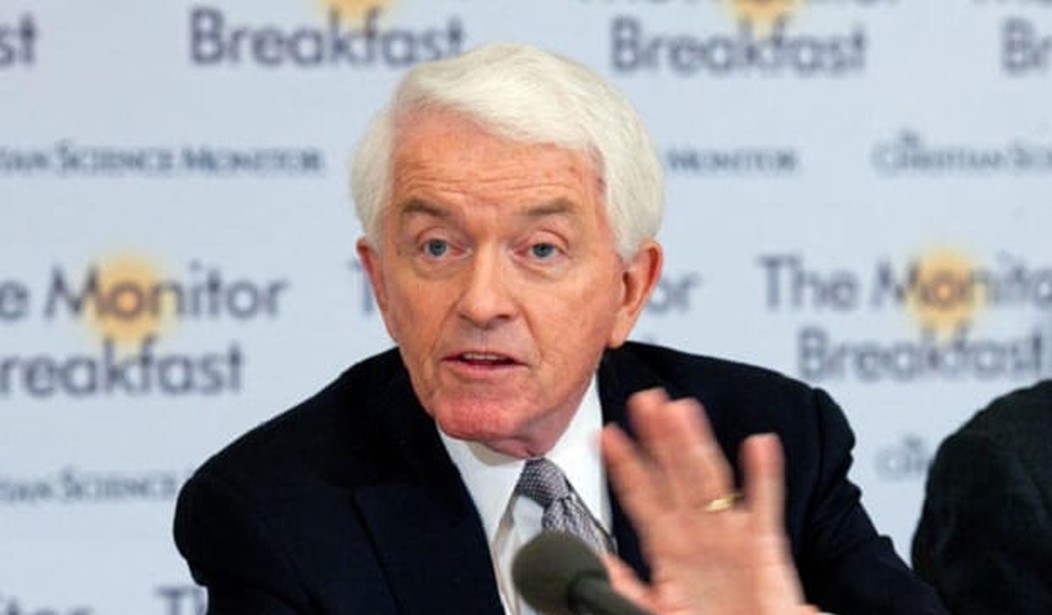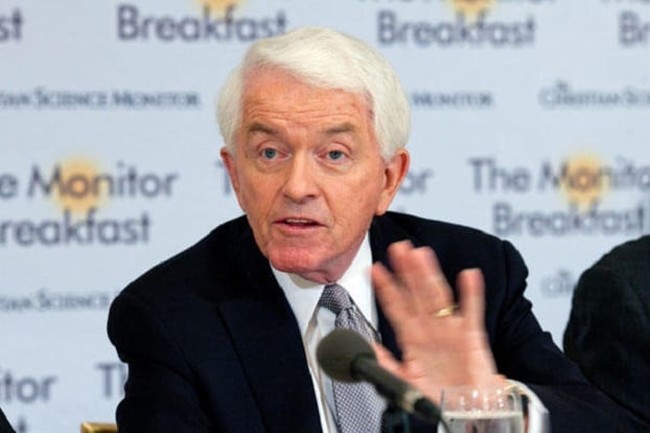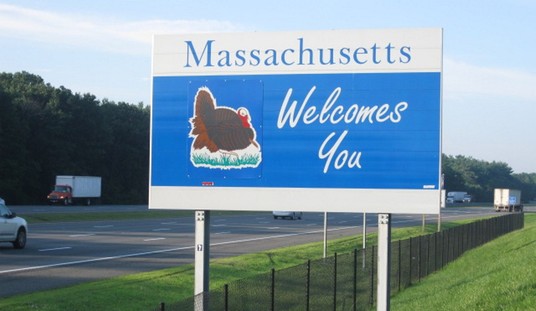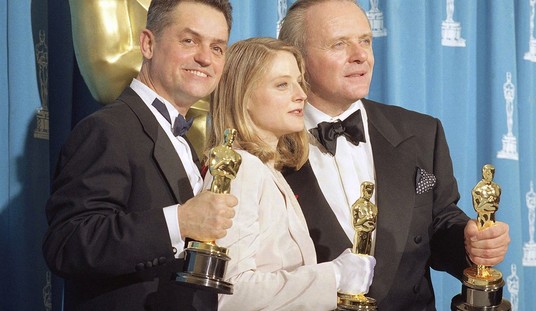With the political demise of Eric Cantor at the hands of a virtually unknown economics professor and senile porkmeister Thad Cochran on life support the business community is looking under its collective bed for bogeymen and they have found it: the conservative movement. From the New York Times:
[House Majority Leader Eric Cantor’s] loss at the hands of David Brat, a Tea Party-inspired economics professor who campaigned on throwing corrupt Wall Street bankers in jail, railed against crony capitalism and insisted that immigration reform would only reward lawbreakers, spurred business leaders to mobilize to preserve their clout in Congress. Already uneasy over what they see as an especially hostile strain of anticorporate populism growing within the conservative movement, and threatening the traditional corporate-friendly centers of power inside the Republican Party, many businesses fear the loss of some of their strongest champions on Capitol Hill.
Calvin Coolidge once said, “the chief business of the American people is business. They are profoundly concerned with producing, buying, selling, investing and prospering in the world.” As it stands now, American business, at least as represented by the Chamber of Commerce and K Street, it deeply and profoundly opposed to this idea. Rather American business has entered a twilight where government coercion is used to put competitors out of business and to prevent new entrants to business. For instance, WalMart’s support of Obamacare is obviously predicated on the fact that WalMart can absorb the increased labor costs more readily than their competitors, likewise Costco’s enthusiasm for a higher minimum wage is inspired by the knowledge that this will hurt competitors. The fierce resistance of taxi companies to companies like Uber have nothing to do with safety or customer service but rather a determination to maintain their comfortable monopoly. The Chamber of Commerce is pushing “comprehensive immigration reform” in order to provide its member companies with sources of cheap labor both in the high tech industry as well as in agricultural and unskilled service jobs.
It should be little wonder then that American business finds itself at odds with the very American people who would like to support it. Back in 2010, Business Week wrote an article titled Why Business Doesn’t Trust the Tea Party that is probably truer today than when it was written:
Nikki Haley is almost everything the South Carolina Chamber of Commerce could want in a candidate for governor: A former small business owner (she helped run her family’s luxury-clothing company in Lexington, S.C.), Haley has served on the boards of two local chambers and campaigns on the traditional business gospel of lower taxes and smaller government.
As Haley was steaming toward an easy win in the Republican primary runoff last June, the South Carolina Chamber’s board—56 business leaders representing sectors ranging from banking to health care to construction—met at Clemson University to decide whether to endorse her or her general election opponent, Vincent Sheheen, a Democratic state senator. It took only 20 minutes around a U-shaped conference table for the board to make its decision: Almost 80 percent of members voted for the Democrat—even though they knew Haley was a virtual lock to become the next governor of their heavily Republican state.
The issue, as the board saw it, was Haley’s extreme and inflexible approach, an ideology of confrontation that can be summed up in two words: Tea Party. Haley had allied herself with this grassroots network of self-described mad-as-hell revolutionaries, which has overrun the GOP—sending at least 14 Senate candidates, including challengers and incumbents allied with the movement, into the Nov. 2 elections—while accusing other Republicans of abandoning conservative tenets. Haley became one of Sarah Palin’s “Mama Grizzlies”; the former Alaska governor and Tea Party celebrity endorsed her in May.
For business leaders who prize pragmatism and stability, it was all too much. “We worried about her ability to get along with the legislature,” says Otis Rawl, chief executive officer of the South Carolina Chamber of Commerce. “We wanted to bring the debate away from the Tea Party and back to the middle.” Chamber members, he says, tend to be “more realistic and moderate in their thought processes. We prefer candidates who are not extreme. If you look at the Tea Party, I think most of them would say they hate Big Business.”
In short, for the Chamber of Commerce it was all about the money. They were comfortable with the existing way of doing business. Changing that way of doing business risked upsetting the apple cart. That is the way the Chamber has approached elections since 2010.
Back to the New York Times:
What has concerned many businesses with a stake in federal policy is a growing anger on the right from people who can sound more Occupy Wall Street than Tea Party.
“You could even make a case that there’s a lot in common between the Tea Party types and the Elizabeth Warren liberals,” said Gregory R. Valliere, the chief political strategist for the Potomac Research Group. “The impact of what’s happened is going to make Republicans in the House apprehensive about appearing to be too cozy to business.”
Conservatives like Mr. Brat would describe their views as more free market than anything else. They mistrust Wall Street and Washington, but diverge with the populist left on things like mandatory minimum wages and the necessity of a social safety net. Mr. Brat attacked Mr. Cantor for running on the “Chamber of Commerce growth plan,” but also would repeal the Affordable Care Act.
Beyond their priorities in Congress, what has unsettled business executives is what they sense as a growing anger over the “corporate welfare” and “crony capitalism” among many associated with the Tea Party.
This is only partly correct. In fact, conservatives have very little in common with “Elizabeth Warren liberals” or the Occupy movement. Objecting to crony capitalism and corporate welfare are not quite the same as nationalizing industry and eradicating capitalism. As Slate’s Jacob Weisberg wrote in Occupy Wall Street and the Tea Party: Compare and Contrast:
At this point, it is pretty clear what the Tea Party view of the world is: smaller government, lower taxes, less spending, and less regulation. One can’t say the same about Occupy Wall Street, which raises a wide variety of complaints: Bankers should be punished; they should be paid less; government should regulate them more aggressively; society is becoming more unequal; people are out of work; money should have no sway in politics; capitalism isn’t working; etc. But Occupy Wall Street is less than a month old, and at a similar point in its emergence, it was much harder to say what the Tea Party stood for beyond “freedom” and the Constitution. OWS leaders, such as they are, have promised that more specific demands will emerge. The problem is that many of the Occupiers’ most trenchant complaints, like excessive pay for CEOs, don’t translate readily into a political program.
Again Calvin Coolidge:
The opposite view was oracularly and poetically set forth in those lines of Goldsmith which everybody repeats, but few really believe: “Ill fares the land, to hastening ills a prey, Where wealth accumulates, and men decay.” Excellent poetry, but not a good working philosophy. Goldsmith would have been right, if, in fact, the accumulation of wealth meant the decay of men. It is rare indeed that the men who are accumulating wealth decay. It is only when they cease production, when accumulation stops, that an irreparable decay begins. Wealth is the product of industry, ambition, character and untiring effort. In all experience, the accumulation of wealth means the multiplication of schools, the increase of knowledge, the dissemination of intelligence, the encouragement of science, the broadening of outlook, the expansion of liberties, the widening of culture. Of course, the accumulation of wealth cannot be justified as the chief end of existence. But we are compelled to recognize it as a means to well-nigh every desirable achievement. So long as wealth is made the means and not the end, we need not greatly fear it. And there never was time when wealth was so generally regarded as a means, or so little regarded as an end, as today.
This is where American business, or more specifically American business leaders, have taken the wrong turn: the pursuit of wealth for no larger purpose than wealth itself. The financial industries gambles billions of dollars each day on investments that are completely intangible and do nothing other than make money. American manufacturers long had a Lockean social contract with their workforce. The pursuit of profit as an end unto itself resulted in workers being treated as disposable commodities. Our economic system has devolved into one of crony capitalism where business relies not upon a superior product or service but upon using purchased governmental clout to hamstring competitors. The military buys equipment it does not need and cannot afford because of the powerful nexus of K Street lobbyists and Congressmen who want to bring home federal dollars. Corporate CEOs are given bonuses comprising multiples of the lifetime earnings of the average working man while driving companies into bankruptcy or presiding over massive layoffs.
We are hardly a generation away from a government-crony capitalist oligopoly such as exists in Russia.
American businesss, as personified by the Chamber of Commerce, Wall Street, and K Street are right to fear conservatism. And the sooner that we conservatives come to the conclusion that our interests – free people and free markets – are not the same as the Chamber of Commerce the sooner we can get about our business.















Join the conversation as a VIP Member